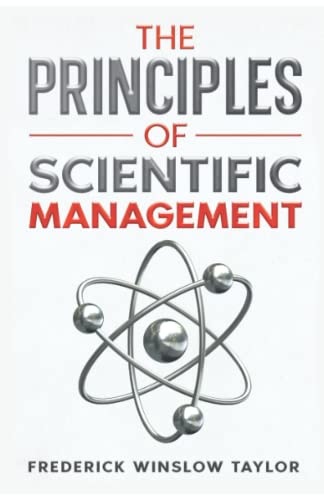Items related to The Principles of Scientific Management

"synopsis" may belong to another edition of this title.
For more than 80 years, this influential work by Frederick Winslow Taylor—the pioneer of scientific management studies—has inspired administrators and students of managerial techniques to adopt productivity-increasing procedures. Indeed, this book laid the groundwork for modern organization and decision theory.
As an engineer for a steel company, Taylor made careful experiments to determine the best way of performing each operation and the amount of time it required, analyzing the materials, tools, and work sequence, and establishing a clear division of labor between management and workers. His experiments resulted in the formulation of the principles expounded in this remarkable essay, first published in 1911.
Taylor advocated a scientific management system that develops leaders by organizing workers for efficient cooperation, rather than curtailing inefficiency by searching for exceptional leaders someone else has trained. The whole system rests upon a foundation of clearly defined laws and rules. Moreover, the fundamental principles of scientific management apply to all kinds of human activities, from the simplest individual acts to the most elaborate cooperative efforts of mighty corporations. Correct application of these principles, according to Taylor, will yield truly astonishing results.
Unabridged Dover (1998) republication of the work published by Harper & Brothers Publishers, New York, 1911.
"About this title" may belong to another edition of this title.
- PublisherCreateSpace Independent Publishing Platform
- Publication date2013
- ISBN 10 1494812754
- ISBN 13 9781494812751
- BindingPaperback
- Number of pages128
- Rating
Buy New
Learn more about this copy
Shipping:
US$ 12.73
From United Kingdom to U.S.A.
Top Search Results from the AbeBooks Marketplace
The Principles of Scientific Management
Book Description Paperback. Condition: Brand New. 128 pages. 8.50x5.50x0.29 inches. This item is printed on demand. Seller Inventory # zk1494812754

